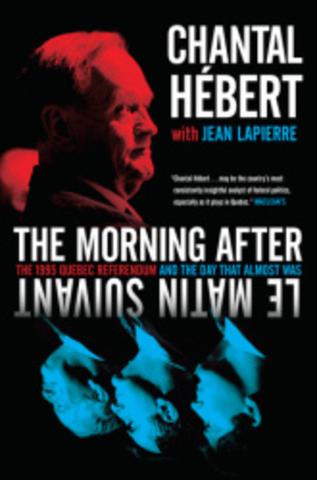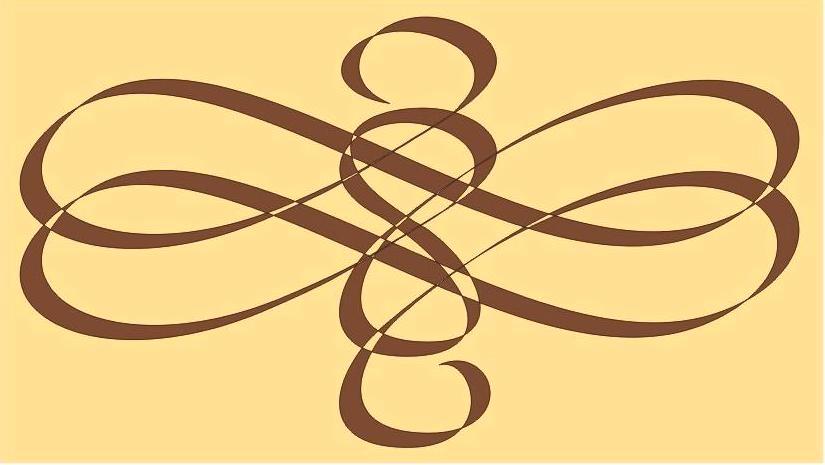 'Those who cannot remember the past are condemned to repeat it.’ - George Santayana - I'm sure many of you have heard variations of the quote above, in a number of incarnations - "Those who do not learn history are doomed to repeat it.", "Those who do not understand history are doomed to repeat it". Regardless of what incarnation or paraphrase of Santayana you have heard or read, the sentiment is very powerful ................ and very poignant. And for the current moment, very timely indeed! Random House Canada has published a new book in the last few weeks, titled The Morning After by Chantel Hébert, (with Jean LaPierre collaborating). I have been reading it avidly at the moment, as it is extremely interesting from both a political and sociological viewpoint - and definitely points out why we must remember the past, as it could point the way to the future!  Knopf Publishing (Random House of Canada) ISBN: 978-0-345-80762-5 Pages: 320 It tells the behind the scenes story of the Quebec Referendum of 1995, as seen by many of the major and minor players directly involved ................. You may never have heard of the author before, but I certainly know her well - she has been a Canadian political analyst, columnist and reporter for decades - I watched her regularly in the 1980's and 90's on the Canadian Broadcasting Corporation (CBC) TV Show"This Week in Politics", where she was a regular political panelist and commentator. Most recently, she has written regularly as national affairs writer with the Toronto Star, and as guest columnist for Quebec's news publications Le Devoir and L'actualite. She is also the author of a previous book, titled French Kiss: Stephen Harper’s Blind Date with Quebec. I'm sure anyone reading this from outside of Canada is probably wondering, at this juncture, why you should care about this particular book, it being of local and regional concern to history buffs, or political junkies only. Even readers in Canada may be skeptical, as the subject is long dead and way in the past, to most. But nothing could be further from the truth, as this book has much to tell about the present being reflected in history ........ and, possibly, how some in this world may be condemned to repeat it! For people who do not follow Canadian politics and are not familiar with Canadian History, both the unique culture and the issue of Quebec separation from Canada is a complex, multifaceted subject. The Quebec Sovereignty Movement, as an active political force and ideology coalesced in the early to mid 1960's in the form of the Parti Québécois, whose goal was creation of Quebec, eventually, as an independent and separate country. Their dream of sovereignty nearly culminated in 1995, when a referendum was held within the province, by the governing Parti Québécois, asking residents to choose, whether they wanted to remain within Canada, or choose a separate path ................. Sound familiar, on the global stage today, anyone ??? I said that this book is extremely timely, given this week another sector of another country is voting on separation .................... in the form of the Scottish Referendum, with vote to be held Thursday, September 18, 2014. Starting into the first few chapters, it shows just how little prepared anyone was for the possibility of a "Yes" vote in Quebec .................. including the protagonists on the "Yes"side! To enumerate the players, "Yes" was represented at the time by Jacque Parizeau, then premier of Quebec, Lucien Bouchard, leader of the federal Bloc Quebecois party, and Mario Dumont, then young idealistic leader of the now-defunct Action démocratique du Québec. "No" was represented by then Canadian Liberal prime minister of the time, Jean Chrétien and by Jean Charest, interim leader of the opposition Progressive Conservatives, both originally from Quebec - and by a host of then provincial premiers and federal ministers, all with differing and conflicting opinions ................ While it was called a sovereignty vote, a "Yes" vote really meant many different things to the "Yes" side - and the political machinations between the three "Yes" men were huge. Bouchard and Dumont had forced Parizeau to promise that after a successful Yes vote, he would offer the rest of Canada a new partnership, political as well as economic, as opposed to a totally sovereign Quebec, as one of the options. Bouchard envisioned a scenario after a Yes vote, where he might have settled for something less than outright sovereignty and wanted a second referendum to ratify the results of negotiations. Parizeau, however, would accept nothing less than total sovereignty and independence, doing many things behind the scene, to ensure that a sovereignty vote would have been definite - and final. He carefully worded the referendum question to give him a mandate to lead Quebec out of Canada without the latter’s agreement, while promising only the “offer” of a partnership, not the partnership agreement itself. The question was very complex and convoluted, so much so that many people voting were unsure as to what a "Yes vote meant .............. or even a "No" vote, for that matter! The No side, meanwhile, was a comparable chorus of mutual incomprehension. Preston Manning, who as Reform Party leader in the Canadian House of Commons had the third-largest caucus in the House of Commons in 1995, told Hébert that if the Yes side had won a majority, “I expected [Jean Chrétien] to resign on that night or shortly thereafter.” If Chrétien had insisted he was still the prime minister, “You would have had Western members leave Parliament and not come back because it would have been considered illegitimate.” I've read some reviews of this book that indicate that Chretien, like Parizeau, had some cards he kept extremely close to his chest, as contingencies, in the event of a "Yes" vote .............. but, as this is discussed in the final chapter, I haven't come to that part yet .................... But, overall, what Hebert reveals is TOTAL CHAOS, in regard to actual unified "nuts and bolts" planning for the "Yes" side succeeding. Neither the separatist "Yes" camp nor the federalist "No" coalition had any detailed coherent plan for how to deal with a Yes, and at the highest echelons on both sides, leaders were working at cross purposes. It is anticipated that the disarray in both the Yes and No camps would only have gotten worse, after a numerical Yes victory. So what happened in Canada's case? - The "No's prevailed, by a margin of 50.1% - as the Duke of Wellington would have said "It has been a damn close thing - the nearest run thing you ever saw..." Fast forwarding to today, the stakes are amazingly similar in Scotland, the consequences as huge .................. and no one knows how it will go ......................... I don't have The Morning After for sale myself at Get A Spine (other than the personal copy I have on hand), but I'm sure you can find it somewhere, at your local bookstore, or to order on-line, if your interested. This is an extremely engaging read for those who wish to understand the politics of history (as opposed to the history of politics <sic>) - It will also be interesting to see whether any of the post-mortem lessons of history, as played out previously in Quebec, will be seen repeated yet again, if the Scottish Nationalists, and the UK government are confronted by a populace that say "YES" ........... Best
to all, living
in these
extremely
interesting
times, and until
next time!
 So the people of Scotland have spoken .................. the question is, have the politicians in Westminister listened????? ............... regardless of whether YES or NO triumphed that day, history has been made, and I have a very strong suspicion that the UK, and especially Scotland will never be the same again ................. My hats off to the Scots - good for you and
Best!

I have little interest in
Facebook or
Twitter (a
subject I will
explore in
future), but
always am
interested in
any comments
you may have -
stimulating
debate,
discussion,
new thoughts
and ideas are
always welcome
at Mark@getaspine.biz
 |
 |
|
|


